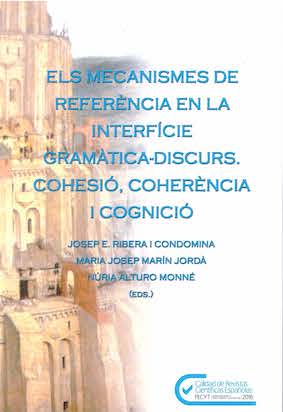Cognitive status and referential acts in functional discourse grammar
DOI:
https://doi.org/10.7203/qf.23.13525Keywords:
Functional Discourse Grammar, reference, activation, preposing Abstract
Abstract
In Functional Discourse Grammar, both Ascription and Reference are characterized as actional processes and are captured at the Interpersonal Level of linguistic description. Additionally, the temporal sequencing of Discourse Acts seems relevant to establishing dependency relations among them. However, the remainder of the levels of representation in the theory contain static descriptions of linguistic structures and not of processes. In this paper, I will argue that this is the result of an inherent contradiction between FDG’s characterization as a static grammar and the dynamicity of verbal interaction, which is best solved if the theory commits itself to the procedural nature of the Interpersonal Level. In order to do so, the different categories that have been identified in the literature on the cognitive status of referents should find relevance in the grammar. Elaborating upon García Velasco (2014), I will show that the temporal dimension of the text creating activity and referent accessibility, are relevant for a full account of constituent preposing in Spanish.
 Downloads
Downloads
Downloads
Published
How to Cite
-
Abstract489
-
PDF334
Issue
Section
License
 Este obra está bajo una licencia de Creative Commons Reconocimiento-NoComercial-SinObraDerivada 4.0 Internacional.
Este obra está bajo una licencia de Creative Commons Reconocimiento-NoComercial-SinObraDerivada 4.0 Internacional.
Authors who publish with this journal agree to the following terms:
- Authors retain copyright and grant the journal right of first publication with the work simultaneously licensed under a Creative Commons Attribution License that allows others to share the work with an acknowledgement of the work's authorship and initial publication in this journal.
- Authors are able to enter into separate, additional contractual arrangements for the non-exclusive distribution of the journal's published version of the work (e.g., post it to an institutional repository or publish it in a book), with an acknowledgement of its initial publication in this journal.
- Authors are permitted and encouraged to post their work online (e.g., in institutional repositories or on their website) prior to and during the submission process, as it can lead to productive exchanges, as well as earlier and greater citation of published work (See The Effect of Open Access).



